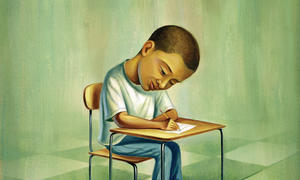When I was growing up, most of my friends were a lot like me. We looked a lot alike, lived in similar neighborhoods and rarely questioned the racial and cultural uniformity that was the fabric of our lives. This isn’t to say that my high school lacked all diversity. Like many high schools, our student population was fairly segregated, and I stuck with the group where I felt most comfortable. It wasn’t until college that I experienced some authentic diversity, developed friendships with people who were different from me, and began to recognize how isolated I had been in high school.

